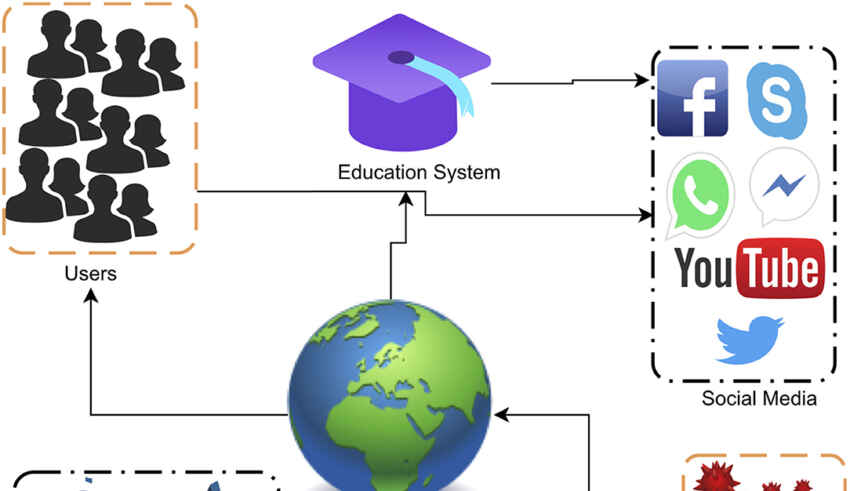
ISLAMABAD, Dec. 14 (INP-WealthPK) — Adoption of technology is very important to fight future challenges of health and for the provision of quality higher education to students from all strata of society.
These observations were made by experts at a symposium titled “Post-COVID Higher Education Challenges and Way Forward,” organized by the OIC’s COMSTECH, in collaboration with the American Institute of Pakistan Studies, the Hollings Center for International Dialogue, and IUCPSS (consortium of public universities of Pakistan).
The symposium was attended by academics from OIC member countries, including Uganda, Nigeria, Kenya, Tanzania, Kazakhstan, and Pakistan.
Coordinator General of COMSTECH, Dr Iqbal Choudhary, gave the welcome address in which he explained the relevance of the topic for the Muslim countries. He said that COVID-19 had changed the world forever, and that new methods of communication and work are becoming normal.
He said, “before the pandemic, the trend of online education was still a fringe one. However, after the pandemic we see that many institutes and students prefer to get education online.”
He continued, “we have also seen the inadequacy of our preparedness to fight unforeseen calamities. We need to rely on science and technology to find solutions to these problems if they occur in the future. The best remedy to events like the pandemic is that we prevent their occurrence through pre-emption.”
Dr Iqbal Choudhary said that the next pandemic is predicted to hit in less than four years’ time, adding that we need to put more emphasis on higher education so that people can easily grasp the risks posed by such threats.
He continued, “we have to rely on technology to find solutions to unforeseen problems. Adoption of technology should serve as the new normal.”
Pro-Rector of Superior University, Dr Mohammad Nizamuddin, during his time said that a survey is needed to assess the implications of the pandemic on the trends of higher education, adding that quality of education has also been affected because of the pandemic.
He said, “however, the pandemic has made it easier to shift to online modes of education, which has made higher education accessible to students in remote areas of the country.”
Dr Nizamuddin stressed on the need for technological innovation, formation of community centers and making higher education accessible to everyone.
Chairman of the Senate Standing Committee on Foreign Affairs, Senator Mushahid Hussain Sayed graced the concluding session of the symposium as the Chief Guest.
Speaking at the occasion he said, “South Asia houses 25% of the global population. Readiness against such threats as the pandemic becomes all the more important for us. We also need to focus on primary, secondary, tertiary and higher education of our youth because otherwise we will not be able to present a collective front to all the problems that we face.”
He said that Pakistan with its regional competitors has the highest proportion of youth under the age of 18, which makes it indispensable that governments in the region adopt modern technologies of higher education at state level.
He continued, “in Pakistan 47 million students have been affected by the pandemic, which included 2 million who were enrolled in higher education in 230 universities across the country.”
He suggested that a deliberative exercise should be arranged for academicians, tech leaders and education experts from across the globe to find better solutions to the problems faced by higher education.
He said that it is very important to adopt best practices in online teaching, assessment, mental health issues, and future pathways from around the world, and copy them here in Pakistani universities.
Mushahid Hussain appreciated the organizers of the symposium for successfully bringing together thought leaders to deliberate on such an important issue.
While delivering the concluding remarks, National Coordinator of IUCPSS, Murtaza Noor highlighted the importance of the symposium and said that the purpose of this exercise was to find solutions to the challenges being faced by the higher education system of the country.

































































































